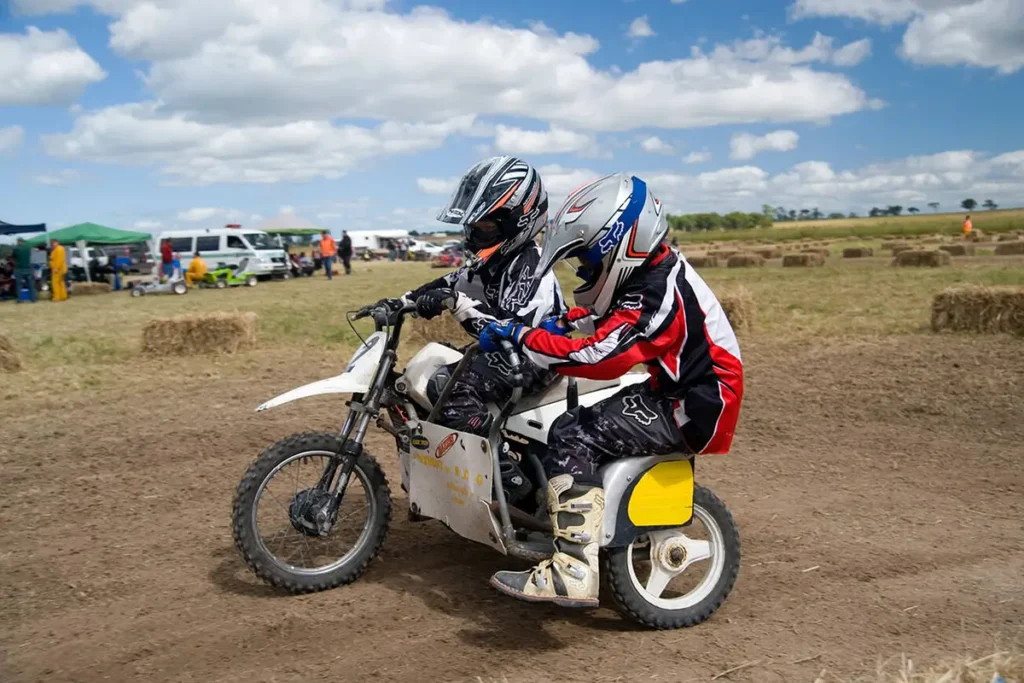Biking might seem like a simple, everyday activity, but it is packed with benefits for growing bodies and minds. It’s far more than just a fun way to pass time—it’s an adventure on two wheels that can help children stay fit, boost their self-esteem, and improve their mental well-being. Let’s break down why encouraging your kids to hop on a bike could be one of the best decisions you make for their overall happiness and health.
- Physical Fitness and Health Benefits
- Mental Health and Cognitive Development
- Fostering Independence and Confidence
- Social Interaction and Bonding
- Outdoor Adventure and Nature Appreciation
- Teaching Road Safety and Responsibility
- Practical Tips for Safe and Fun Cycling
- Conclusion: Pedaling Towards a Happier and Healthier Future
Physical Fitness and Health Benefits
Biking offers a full-body workout disguised as fun. When kids push those pedals, they aren’t just moving forward—they’re building strength and endurance.
Cardiovascular Fitness
Cycling is a great way to get the heart pumping. Regular biking helps keep the cardiovascular system healthy, improves lung capacity, and can even lower the risk of heart disease later in life. For kids, this is an easy way to build a strong foundation of fitness that will carry them into adulthood.
Muscle Development
When a child rides a bike, almost every muscle in their body gets in on the action. The leg muscles (especially the quads and hamstrings) do most of the heavy lifting, but cycling also engages the core, helping to build stability and coordination. Plus, gripping the handlebars and maintaining balance works the arms, shoulders, and upper back. Over time, this leads to improved posture and overall body strength.
Weight Management
We all know it—kids today are spending more time glued to screens. Biking provides the perfect antidote. It helps burn off extra energy, regulate metabolism, and fight against weight gain. In fact, regular biking sessions can be key in preventing obesity and related health issues like diabetes.
Bone and Joint Health
Cycling is gentle on growing joints while still promoting bone strength. The low-impact nature of cycling makes it an ideal activity for kids who might struggle with other forms of exercise due to joint discomfort or injuries. Plus, exposure to sunlight while biking gives them a natural boost of Vitamin D, which is essential for healthy bones.
Mental Health and Cognitive Development

It’s not just the body that benefits from biking—there are powerful advantages for the mind as well.
Stress Relief and Mood Improvement
There’s something magical about the way biking can lighten a kid’s mood. The simple act of pedaling releases endorphins—those feel-good chemicals that reduce stress and elevate happiness levels. After a rough day at school, a quick bike ride can work wonders in helping them relax and reset.
Boosts in Focus and Cognitive Skills
Cycling requires concentration. Whether it’s steering through a park or navigating a tricky corner, kids are constantly engaging their brains. This can help improve their ability to focus, solve problems, and make quick decisions. Over time, this increased mental agility can translate into better performance in school and other activities.
Fostering Independence and Confidence
Learning to ride a bike is a classic childhood milestone—and for good reason. It’s a big confidence booster. There’s nothing quite like the sense of freedom a child feels when they realize they can hop on their bike and go wherever their imagination takes them.
Independence on Two Wheels
Once kids master the art of balancing, pedaling, and steering, they gain a new level of autonomy. No longer reliant on parents or buses to get them places, they can venture out on their own (within safe boundaries, of course). This newfound freedom helps build a sense of independence that transfers into other areas of life, from making decisions to problem-solving.
Confidence from Mastering a Skill
Conquering the challenges of learning to ride a bike—whether it’s perfecting balance or tackling a steep hill—boosts self-esteem. Every small win on a bike, like riding without training wheels or learning a new trick, builds a sense of accomplishment. Kids are left feeling capable and proud of their abilities.
Social Interaction and Bonding
Biking isn’t just a solo activity. It’s a fantastic way for kids to connect with others, whether they’re riding with friends, siblings, or parents.
Friendship on the Move
Cycling provides plenty of opportunities for kids to socialize. Group rides foster communication, teamwork, and even friendly competition. Whether they’re racing to the next tree or riding side-by-side on the way to the park, biking strengthens bonds and creates lasting memories.
Family Bonding
Family bike rides offer a great way for parents to spend quality time with their children. It’s an activity everyone can enjoy together, without the distractions of screens or technology. Plus, riding together can open up conversations that wouldn’t happen in other settings, allowing for deeper connections and better communication within the family.
Outdoor Adventure and Nature Appreciation
In a world increasingly dominated by screens and indoor activities, biking gets kids outside and into nature—a key factor for both physical and mental health.
Exploring the Great Outdoors
Biking takes kids on a journey through different environments. Whether they’re coasting through the neighborhood, zipping down trails, or exploring a local park, each ride is a chance to connect with nature. Exposure to natural surroundings helps reduce stress, fosters creativity, and encourages a sense of adventure.
Environmental Awareness
When kids spend more time outside, they start paying attention to the world around them. They notice the trees, the birds, the changing seasons. This awareness can foster a deeper appreciation for the environment, teaching them the value of conservation and the importance of protecting the natural world.
Teaching Road Safety and Responsibility
Biking isn’t just fun—it’s a way for kids to learn important life skills, including road safety and personal responsibility.
Learning the Rules of the Road
Biking gives children an opportunity to learn about road safety in a practical, hands-on way. Whether it’s understanding traffic signs, using hand signals, or learning to watch for pedestrians, these lessons become second nature as they ride. And these skills will be essential later on when they’re old enough to drive.
Responsibility for Equipment
Caring for their bike teaches kids a valuable lesson in responsibility. Simple tasks like checking tire pressure, adjusting the seat, or making sure the brakes work properly before heading out on a ride help develop a sense of ownership. Plus, it shows them that taking care of their belongings ensures their safety.
Practical Tips for Safe and Fun Cycling
Here are some quick and practical tips to make sure biking remains a safe and enjoyable activity for your kids.
| Age Group | Recommended Bike Type | Key Safety Gear | Supervision Level |
|---|---|---|---|
| 3-5 | Balance Bike | Helmet, Knee Pads | Full Supervision |
| 6-9 | Training Wheels/BMX | Helmet, Elbow Pads | Moderate Supervision |
| 10-12 | Mountain Bike | Helmet, Reflective Gear | Light Supervision |
| 13+ | Road Bike | Helmet, Lights | Independent, with check-ins |
- Choose the Right Bike: Make sure the bike fits properly. Your child should be able to sit on the seat with both feet flat on the ground. An uncomfortable bike can make riding frustrating, so getting the size right is key.
- Helmets are a Must: This isn’t up for debate. A properly fitting helmet is essential for protecting your child from head injuries.
- Plan Safe Routes: Stick to parks, bike paths, or quiet streets. Always avoid busy roads or areas with heavy traffic.
Conclusion: Pedaling Towards a Happier and Healthier Future
Biking is one of the simplest ways to keep your child active, engaged, and happy. It offers a wealth of benefits that go far beyond just physical fitness. Whether they’re cruising through the neighborhood, tackling new biking challenges, or simply enjoying a leisurely family ride, the joy and advantages of biking are undeniable.
The next time your child looks a bit restless or stuck to a screen, just suggest a bike ride. Those two wheels might just hold the key to better health, greater happiness, and lasting memories.

Dalton Warner
Dalton Warner is a seasoned tech writer and digital marketing expert with over five years of experience in consumer gadgets. As the mind behind The Gadget Flux Blog, Dalton Warner combines a passion for emerging tech with an ability to break down complex concepts into engaging, reader-friendly content. Their work has been featured on major platforms, helping audiences stay informed on the latest trends in AI-powered devices, smart homes, and more. When not writing, Dalton Warner enjoys exploring new gadgets and experimenting with smart home setups.
